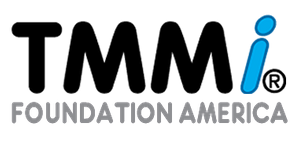The TMMi framework has been developed by the TMMi Foundation as a guideline and reference framework for test process improvement and is positioned as a complementary model to the CMMI Version 1.3 [CMMI] addressing those issues important to test managers, test engineers and software quality professionals. Testing as defined in the TMMi is applied in its broadest sense to encompass all software product quality-related activities.
Testing: The process consisting of all lifecycle activities, both static and dynamic, concerned with planning, preparation and evaluation of software products and related work products to determine that they satisfy specified requirements, to demonstrate that they are fit for purpose and to detect defects. [ISTQB]
Just like the CMMI staged representation, the TMMi also uses the concept of maturity levels for process evaluation and improvement. Furthermore process areas, goals and practices are identified. Applying the TMMi maturity criteria will improve the test process and have a positive impact on product quality, test engineering productivity, and cycle- time effort. The TMMi has been developed to support organizations with evaluating and improving their test process. Within the TMMi, testing evolves from a chaotic, ill-defined process with a lack of resources, tools and well-educated testers to a mature and controlled process that has defect prevention as its main objective.
Practical experiences are positive and show that TMMi supports the process of establishing a more effective and efficient test process. Testing becomes a profession and a fully integrated part of the development process. As stated the focus of testing changes from defect detection to defect prevention.
